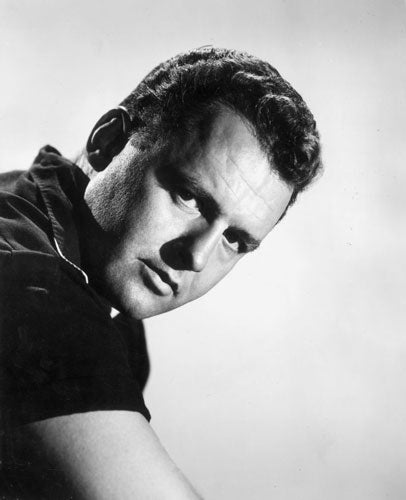Culture scene: Delbert Mann's TV movie of <i>Marty</i>
An ordinary Joe breaks the mould for 1950s romance

Delbert Mann made two versions of Paddy Chayevsky's script, Marty. The feature film starring Ernest Borgnine won plenty of plaudits (and an Oscar for Borgnine) in 1955, but the live TV version he shot with Steiger in 1953 was infinitely more powerful. Whereas Borgnine played for pathos, Steiger had far more anger and edge.
In the 1950s, the advertisers were beginning to control American television. They dictated what was shown when and why. In their glossy, make-believe world, love was all about magical affairs between handsome men and beautiful women. Imagine Doris Day and Rock Hudson in Pillow Talk but without the irony or humour and you'll get some sense of the culture of love of that day. Against such a backdrop, a drama like Marty seemed truly revolutionary.
It's about the relationship between a Bronx butcher (Steiger) and a very plain schoolteacher (Nancy Marchand). They treat one another with a shy, hesitant gentleness. Marty is mocked by his friends for even being interested in such an unprepossessing woman... but he is an unprepossessing man and that's the whole point of the drama.
Chayevsky was kicking against received notions about romance. As he put it, "There is far more exciting drama in the reasons why a man gets married than in why he murders someone." He wanted to portray a love affair between two ordinary people in its full complexity.
The critics loved this approach. The advertisers were less impressed. There is a limit to the amount of toothpaste you can sell on the back of a drama about the love life of a repressed Bronx butcher who can't find a girlfriend.
Delbert Mann later claimed that the inspiration for the movie was a ballroom in the Abbey Hotel in New York where single people used to congregate in the hope of finding a date. You can imagine the film being re-made today as a Ben Stiller comedy in which the characters in all their fragility and awkwardness were roundly mocked. Mann does them the honour of taking them seriously.
Rather than complain about missing out on the movie version, Steiger was grateful that he was given the chance to appear in such a seemingly downbeat project in the first place.
"I was lucky," Steiger said in an interview several years later. "I came along with some sort of talent when television was born and unknown people got a chance to be hired. Big business didn't move into television until about 1955. Before then, nobody was paying too much attention. There were no rules. The sponsors didn't have the grip on the material they have today."
Movies and TV dramas often take an extraordinarily sappy approach to love. Whether it's Tom Hanks and Meg Ryan in Sleepless In Seattle or Cary Grant and Deborah Kerr in An Affair To Remember, there is often an all-out assault on the tear ducts of the audience. Music, corny plot twists and overwrought close-ups are all used to crank up the emotions.
But this is not love as it happens in real life. For that, you have to turn to dramas like Marty that are messy and open-ended but have a tenderness and authenticity no Hollywood movie can match.
Join our commenting forum
Join thought-provoking conversations, follow other Independent readers and see their replies
Comments
Bookmark popover
Removed from bookmarks